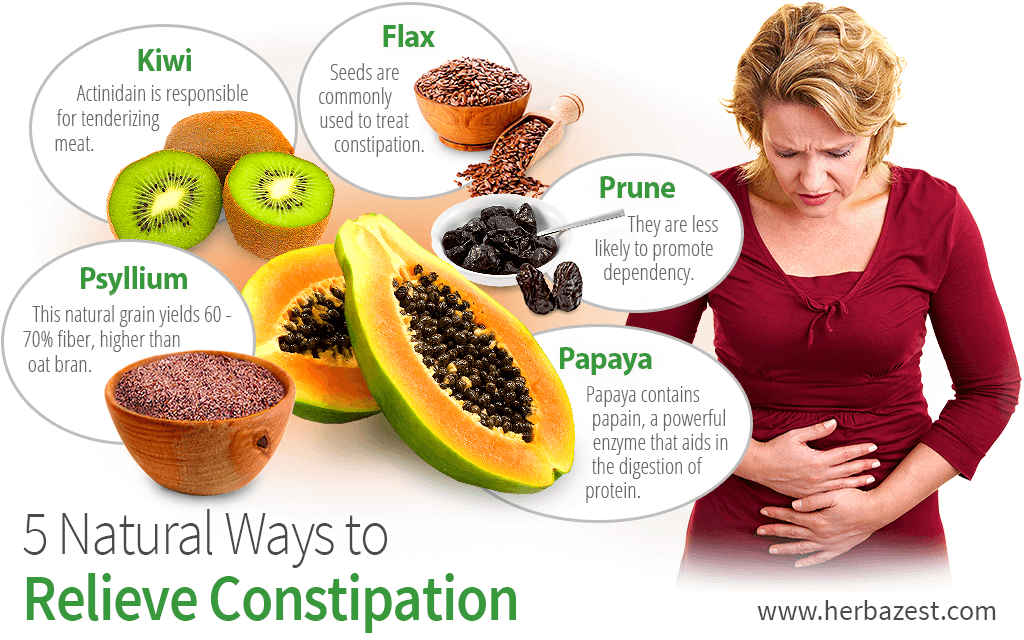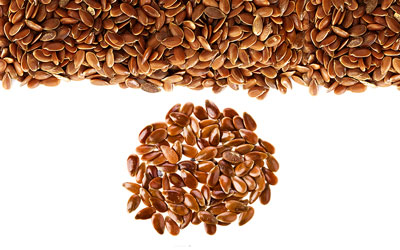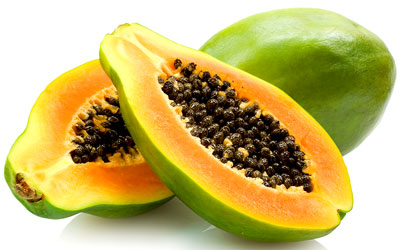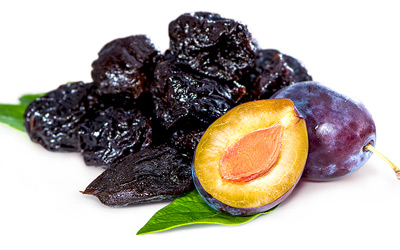Bad eating habits, especially excessive consumption of processed foods, can negatively affect your gut's proper function, causing a number of problems, such as unhealthy weight gain, high cholesterol, and chronic constipation.
It is commonly known that fiber consumption leads to adequate digestion.It has also been linked to a reduction in the risk of chronic illnesses, like heart disease and diabetes. But not all fiber sources are made equal. These are some of the best fiber-rich foods you can incorporate into your diet to improve your gut's health.
1. Prunes
Prunes are great to relieve constipation. Their efficient laxative action is commonly attributed to their high fiber content, but it is actually sorbitol that is mainly responsible for these effects. Although this carbohydrate cannot be digested by the body, it helps balance sugar and water levels in stool, enabling it to pass through the digestive tract more easily and with significantly less pain.1,2,3
Prunes are safe to consume and are less likely to promote dependency than irritant laxatives. For that reason, they are regarded as one of the best options for mid- to long-term constipation relief. Prunes can be eaten raw, freshly ground, juiced, in syrup form, as jam, or as supplements.
2. Kiwi
Kiwi fruits offer a high dietary fiber content and have shown their benefits for the digestive system. Actinidain, the active component in kiwis, is responsible for tenderizing meat, so it helps to break down proteins during digestion. Kiwifruit is well known for relieving symptoms of irritable bowel syndrome (IBS).4,5 This exotic and delicious fruit is relatively easy to find, and it can be consumed raw in salads, juices, and smoothies. Its active compound can also be found in capsules.
3. Psyllium
Psyllium is a natural grain that is composed of an outstanding 60 - 70% fiber, eight times higher than oat bran. After being ingested, its high non-soluble fiber content doesn't get absorbed in the small intestine. Instead, it passes right through to the large intestine, where it is partially broken down by normal bacterial flora. It absorbs the excess of water and increases around 10 times in volume, becoming a mucilaginous gel responsible for bulking the stools and stimulating their elimination.6
Psyllium is easy to incorporate in a healthy diet by taking it as a supplement. It can also be mixed with water, smoothies, and shakes in its powdered form or taken in capsules. To make the most out of its effects, it is recommended to consume psyllium with every meal and plenty of liquids.
4. Flax
Flax, like psyllium, has a high soluble and insoluble fiber content. The seeds are commonly used as a treatment for constipation as their fiber and mucilage content helps improve stool motility.7 An easy way to include flaxseed as part of a healthy diet is adding it to cereals, salads, and smoothies.
5. Papaya
Papaya contains papain, a powerful enzyme that aids in the digestion of protein and is even used to tenderize meat. It can be prescribed for dyspeptic patients and those with celiac disease.8 Papaya is most commonly consumed raw for breakfast or in fruit salads and smoothies.
The presence of both soluble and insoluble dietary fiber is a must for maintaining a healthy digestive system. If you are not used to having fiber in your diet, it's recommended to start with small doses and increment your intake gradually. In just few weeks, you'll see positive changes.
Sources
- Advances in Nutrition, What Do We Know about Dietary Fiber Intake in Children and Health? The Effects of Fiber Intake on Constipation, Obesity, and Diabetes in Children, 2012
- Allergy, Determination and characterization of cross-reacting allergens in latex, avocado, banana, and kiwi fruit, 1998
- Innovations in Pharmacy, Alternative Treatments for Minor GI Ailments, 2019
- Journal of Food Science and Technology, Flax and flaxseed oil: an ancient medicine & modern functional food, 2014
- MedlinePlus Herbs and Supplements, Dietary Fiber
- American Journal of Clinical Nutrition, Long-term cholesterol-lowering effects of psyllium as an adjunct to diet therapy in the treatment of hypercholesterolemia, 2000
- Kew Royal Botanic Gardens, Actinidia deliciosa
Footnotes
- Alimentary Pharmacology & Therapeutics. (2011). Randomised clinical trial: dried plums (prunes) vs. psyllium for constipation. Retrieved April 29, 2022, from https://pubmed.ncbi.nlm.nih.gov/21323688/
- The American Journal of Medicine. (1990). Cost-effective treatment of constipation in the elderly: a randomized double-blind comparison of sorbitol and lactulose. Retrieved April 29, 2022, from https://pubmed.ncbi.nlm.nih.gov/2122724/
- Digestive Diseases and Sciences.(2006). Effect of nonabsorbed amounts of a fructose-sorbitol mixture on small intestinal transit in healthy volunteers. Retrieved April 29, 2022, from https://pubmed.ncbi.nlm.nih.gov/16416228/
- Asia Pacific Journal of Clinical Nutrition. (2010). Kiwifruit improves bowel function in patients with irritable bowel syndrome with constipation. Retrieved April 29, 2022, from https://pubmed.ncbi.nlm.nih.gov/21147704/
- Alimentary and Pharmacology Therapeutics. (2019). Mechanisms underlying effects of kiwifruit on intestinal function shown by MRI in healthy volunteers. Retrieved April 29, 2022, from https://www.ncbi.nlm.nih.gov/pmc/articles/PMC6590324/
- International Journal of Molecular Sciences. (2019). The Effect of Psyllium Husk on Intestinal Microbiota in Constipated Patients and Healthy Controls. Retrieved April 29, 2022, from https://www.ncbi.nlm.nih.gov/pmc/articles/PMC6358997/
- Asia Pacific Journal of Clinical Nutrition. (2020). Effects of flaxseed supplementation on functional constipation and quality of life in a Chinese population: A randomized trial. Retrieved April 29, 2022, from https://pubmed.ncbi.nlm.nih.gov/32229443/
- Clinical and Translational Gastroenterology. (2018). Combination of Gluten-Digesting Enzymes Improved Symptoms of Non-Celiac Gluten Sensitivity: A Randomized Single-blind, Placebo-controlled Crossover Study. Retrieved April 29, 2022, from https://www.ncbi.nlm.nih.gov/pmc/articles/PMC6143542/









